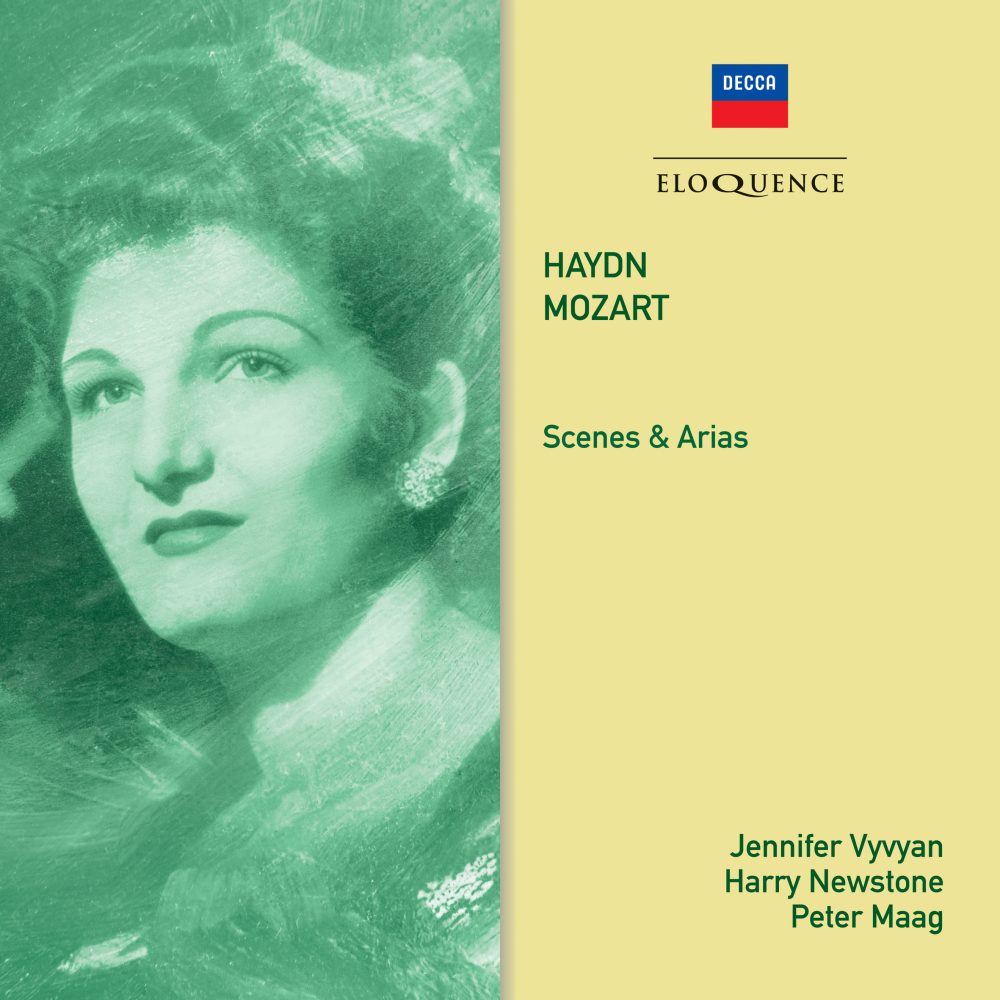
The role of Constanze in ‘Die Entführung aus dem Serail’ is famously one of the most demanding, not only among Mozart’s operas but in the entire dramatic coloratura repertoire. The singer should have youth on her side, yet the technique to master two long and taxing arias placed almost back to back and the emotional maturity to convey the character’s plight as a prisoner and slave. ‘One rarely finds a singer to do it justice,’ as the Opera magazine reviewer remarked of a Sadler’s Wells production in October 1952. And yet, in Jennifer Vyvyan, he did: ‘her voice is excellently placed … she is already a highly accomplished singer and there is every possibility that she will become a great one.’
‘Entführung’ has never commanded the record catalogues like the Da Ponte trilogy and thus the opportunity was lost to capture Vyvyan in this and the other Mozartian role which she often sang near the start of her career, Elettra in ‘Idomeneo’. By way of partial compensation, she recorded for Decca in 1957–58, a studio album of dramatic scenes and arias by Haydn and Mozart which are distinguished by the qualities noted above of her work on stage. ‘Ah, lo previdi’ and ‘Ch’io mi scordi di te’ are hardly less technically challenging than Constanze’s arias but Vyvyan sings them with sovereign authority and the penetrating tone that contributed to her imposing stage presence.
Indeed, her particular combination of authority and vulnerability both on stage and in life, were qualities captured by Benjamin Britten in the several principal roles he wrote for her such as the Governess in ‘The Turn of the Screw’ and Tytania (spelled thus in honour of Vyvyan herself) in ‘A Midsummer Night’s Dream’. They are also aspects of the abandoned Berenice, in Haydn’s extended and unusually melodramatic scena.
Giving stylish backing to Vyvyan was a London pick-up band under the name of the Haydn Orchestra and conducted by the Classical-era specialist Harry Newstone who made many pioneering recordings of Haydn symphonies in the UK. Filling out this new collection are three items from an album first released in May 1956 when the soprano was accompanied by the LPO and Peter Maag who made an international reputation as a Mozart conductor with regular appearances at festivals such as Aix and Salzburg from the early years of his long career.
This CD is one of five recordings released by Eloquence celebrating the art of Jennifer Vyvyan. All Decca recordings from the 1950s, many appearing for the first time on Decca CDs, they include ‘Mr. Bach at Vauxhall Gardens’ (482 5387), the first recording of Purcell’s The Fairy Queen (482 7449), ‘Songs of England’ (482 5045) and arias by Mozart and Haydn (482 5049).
FRANZ JOSEPH HAYDN
Scena di Berenice ‘Berenice, che fai?’, Hob. XXIVa:10
Missa Sancta Caeciliae (Missa cellensis), Hob. XXV:5:
Laudamus te
Quoniam
WOLFGANG AMADEUS MOZART
‘Ah, lo previdi … Ah, t’invola agl’occhi miei’, KV 272
‘Ch’io mi scordi di te … Non temer, amato bene’, KV 505
Peter Wallfisch, piano
Ah se in ciel, benigne stelle, KV 538
Credo: Et incarnatus est (from Mass in C minor, KV 427 ‘Grosse Messe’)
Alleluia (from Exsultate, jubilate, KV 165)
Haydn Orchestra
Harry Newstone
London Philharmonic Orchestra
Peter Maag
Jennifer Vyvyan, soprano
Recording Producers: Christopher Whelan (1–3); Michael Williamson, Ray Minshull (4, 5); unknown (6–8)
Balance Engineers: Kenneth Wilkinson, Ken Cress (1–3); Peter van Bienen, Kenneth Wilkinson (4, 5); unknown (6–8)
Recording Locations: Kingsway Hall, London, UK, 7–8 May 1957 (1–3), Walthamstow Assembly Hall, London, UK, 14–15 April 1958 (4, 5); unknown (6–8)
Remastering Engineer: Chris Bernauer
Original Decca LP Releases: LW 5334 (1–3); LXT5589/SXL2233 (4, 5); LW 5247 (6–8)
‘I have nothing but admiration for the assurance and agility with which [Jennifer Vyvyan] negotiates these vocal precipices … The tight little vibrato in her voice is completely in place in moods of passion and anguish … Harry Newstone’s accompaniment is unfailingly alert, and the recording excellent.’ Gramophone, October 1960
